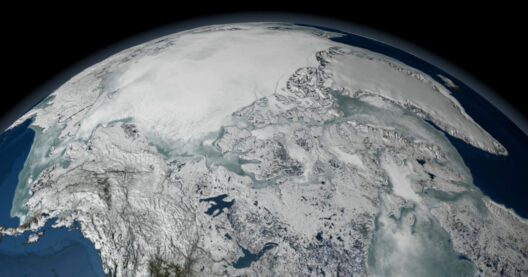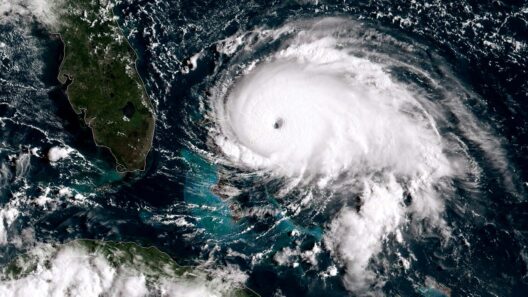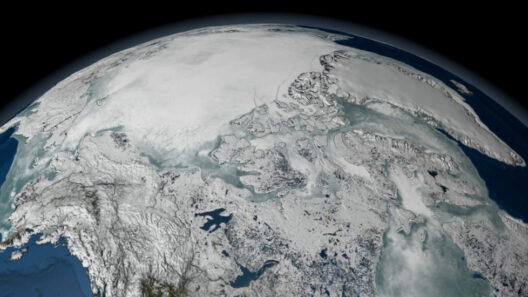President Donald Trump’s relationship with climate change and global warming has been a contentious issue, eliciting fervent debates across political spectrums and among climate scientists, activists, and the general public. The topic has generated waves of media coverage, and it is paramount to dissect the various facets of his stance to comprehend the broader implications. Does he genuinely care about global warming, or has his approach been shaped by other motivations? Examining headlines, policies, and public statements provides insight into his attitude toward environmental issues.
The backdrop is critical. The scientific consensus on climate change is robust, with countless studies highlighting its potential catastrophic effects on weather patterns, sea levels, and biodiversity. Given this alarming reality, one might naturally expect a leader of a major power to prioritize environmental policies and climate action. However, Trump’s administration often appeared to diverge from the established scientific understanding, raising questions about the motivations behind his decisions.
In the early days of his presidency, Trump made headlines by announcing the United States withdrawal from the Paris Agreement, a landmark international treaty aimed at curbing global warming. His reasoning centered around what he characterized as the adverse economic impact and a supposed lack of fairness to the U.S. economy. This move, widely scrutinized by environmentalists and global leaders alike, marked a significant pivot from multilateral collaboration to a more insular approach. Critics argued that this decision was emblematic of a broader indifference toward climate science. However, supporters hailed it as a commitment to American jobs and sovereignty.
Further scrutiny of Trump’s rhetoric reveals a pattern of dismissing climate change as a hoax, often attributing the phenomenon to natural cycles rather than anthropogenic factors. Such statements resonate with his political base, which harbors skepticism towards climate science. This skepticism is not merely a reflection of personal beliefs but taps into deeper societal divisions about environmental policy, economic priorities, and the role of government regulation. Supporters often express concerns that aggressive environmental policies could stifle economic growth and infringe on personal freedoms, framing Trump’s approach as a defense of traditional values against perceived overreach.
The economic dimension of environmental policy underscores a pivotal dichotomy that characters Trump’s stance. On one hand, the fossil fuel industry became a significant beneficiary during his administration, thanks largely to deregulation efforts aimed at promoting oil, gas, and coal production. These sectors enjoy considerable political clout, often financing political campaigns and lobbying efforts intended to shape public policy. The prioritization of economic growth in fossil fuel industries often overshadowed considerations regarding climate change. This nexus between economic interest and environmental policy raises alarms about prioritizing short-term gains over long-term sustainability.
Despite Trump’s public skepticism and policy decisions, other facets of his administration’s actions tell a more nuanced story. There were moments where rhetoric seemed to acknowledge issues surrounding climate change, albeit in a truncated manner. In certain speeches, Trump acknowledged natural catastrophes and their intensity, suggesting an awareness of the climate’s variability and the challenges posed by extreme weather events. Such acknowledgments were often framed within a narrative of recovery and resilience rather than climate responsibility, hinting at a recognition of environmental issues without a commitment to long-term solutions.
Trump’s administration also encountered significant pushback from young, climate-conscious activists who mobilized to demand accountability and action on climate change. Figures such as Greta Thunberg ignited a global movement, urging leaders to confront the harsh realities of climate change. This generational perspective represents a formidable challenge to Trump’s narrative, suggesting a shift in public sentiment towards recognizing the urgent need for climate action.
The political ramifications of climate change will undoubtedly reverberate long after Trump’s presidency. A polarized political atmosphere contributes to a reluctance in addressing environmental issues comprehensively. The precarious balancing act between economic interests and environmental stewardship remains a focal point of national discourse. Trump’s presidency arguably crystallized the division, galvanizing both sides of the debate louder than ever before.
Furthermore, examining the media’s portrayal of Trump’s stance sheds light on the broader dynamics at play. Headlines that dissect his every word contribute to a culture of fixation on political theatre rather than substantive discourse about environmental action. This phenomenon is indicative of a deeper societal challenge: How can a comprehensive understanding of climate change triumph over sensationalism? Moving forward, it is imperative that conversations evolve from mere political speculation to inclusive dialogues focusing on actionable solutions.
In summation, the question of whether President Trump cares about global warming cannot be answered with certainty. His administration’s policies and public stances suggest a dissonance between acknowledgment of climate-related challenges and decisive action. The interplay between economic interests, political allegiances, and public sentiment complicates the landscape, making it imperative for future leadership to transcend partisan divides. Addressing climate change will require a collective effort to synthesize economic considerations with environmental realities, ultimately forging a pathway toward sustainability and resilience.







